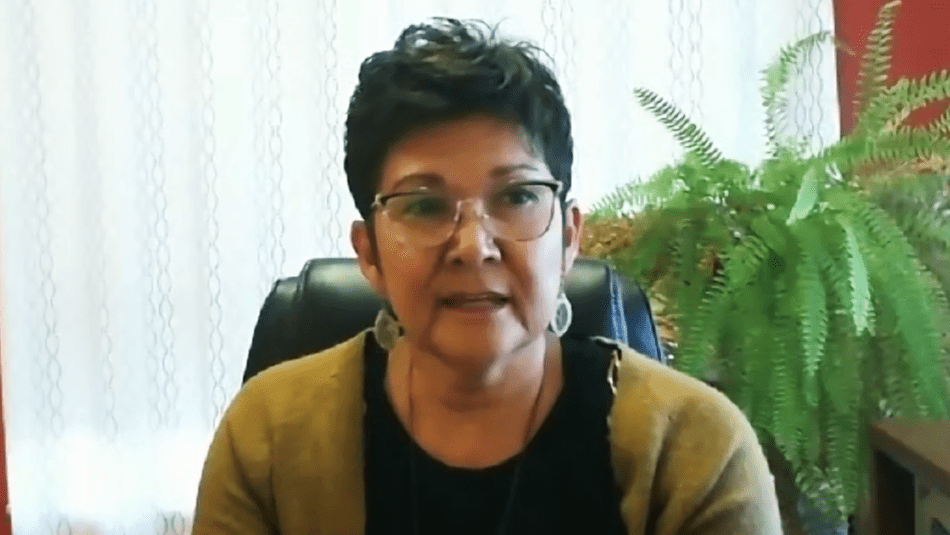
Share
Dozens of Unifor members participated in the webinar “Indian Residential Schools - Effects & Impacts” on September 14, 2021, the tenth in Unifor’s Turtle Island Series.
“Kill the Indian in the Child,” was the goal of the schools said respected Indigenous leader Eva Wilson-Fontaine, who led the discussion along with emcee Gina Smoke, Unifor’s Indigenous Liaison. The 90-minute event provided an unvarnished review of the goals and practices of Canada’s state-sponsored residential school system and the lasting impacts on Indigenous communities today.
Wilson-Fontaine began her talk with a video that replayed first-hand accounts of abuse at the hands of church figures at residential schools done in the name of “civilizing” Indigenous communities. By forcibly removing children of all ages, the church, with the financial support of the federal government, sought to erase the culture and language of First Nations from the younger generations.
She also noted that many child and family services agencies have picked up on the work of residential schools by removing children from their families and placing them in non-Indigenous households.
It is estimated that 150,000 Indigenous children were taken from their families during the residential school era, which began in the early 1800s and lasted until the late 1970s.
Of these forcibly removed children, some figures suggest that up to 50,000 children died in the “care” of residential schools, in causes ranging from disease, suicide, malnutrition and murder. Many died trying to escape the schools to reunite with their family.
Tens of thousands more suffered sexual, physical, and emotional abuse by school staff.
In this context of ritual abuse and cultural genocide, Wilson-Fontaine said that survivors of residential schools often experienced difficulty forming loving relationships and were apt to reproduce cycles of violence they experienced as children at the hands of the church.
“This intergenerational trauma and continued underfunding of services for Indigenous communities forms the basis for Unifor’s reconciliation work,” said Gina Smoke. “Injustice must be called out and we must all fight to have the Truth and Reconciliation Commission’s recommendations implemented.”
Following her presentation Wilson-Fontaine took questions from Unifor members that primarily focused on taking action as activists and allies. She helped frame the discussion by discussing the aim of her agencies work, which is to turn “survivors” into “thrivers”.
Wilson-Fontaine suggested that members can do community service with sincerity and respect as well as seeking out charitable organizations who are close to communities in need of assistance.


